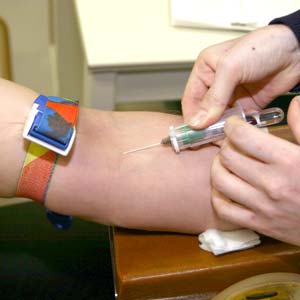Prostate-specific antigen (PSA) is a protein produced by cells of the prostate gland. The PSA test measures the level of PSA in the blood. The doctor takes a blood sample, and the amount of PSA is measured in a laboratory. Because PSA is produced by the body and can be used to detect disease, it is sometimes called a biological marker or a tumor marker.

It is normal for men to have a low level of PSA in their blood; however, prostate cancer or benign (not cancerous) conditions can increase a man’s PSA level. As men age, both benign prostate conditions and prostate cancer become more common. The most frequent benign prostate conditions are prostatitis (inflammation of the prostate) and benign prostatic hyperplasia (BPH) (enlargement of the prostate). There is no evidence that prostatitis or BPH causes cancer, but it is possible for a man to have one or both of these conditions and to develop prostate cancer as well.
A man’s PSA level alone does not give doctors enough information to distinguish between benign prostate conditions and cancer. However, the doctor will take the result of the PSA test into account when deciding whether to check further for signs of prostate cancer.